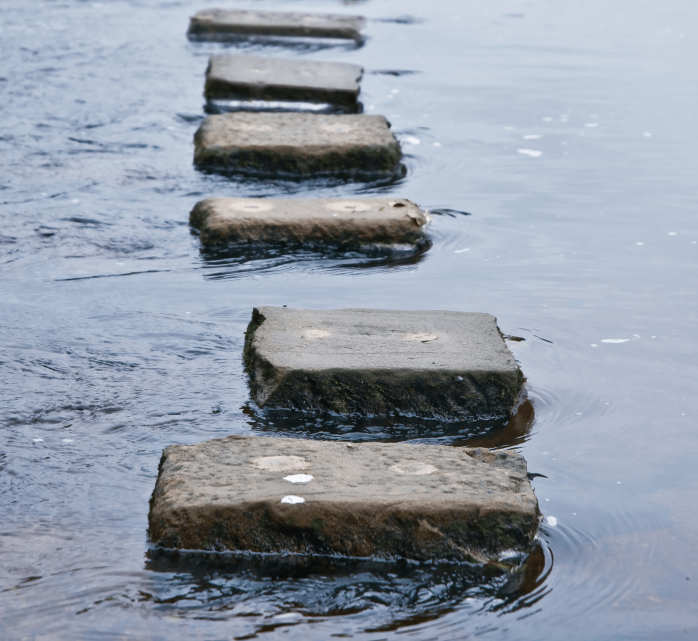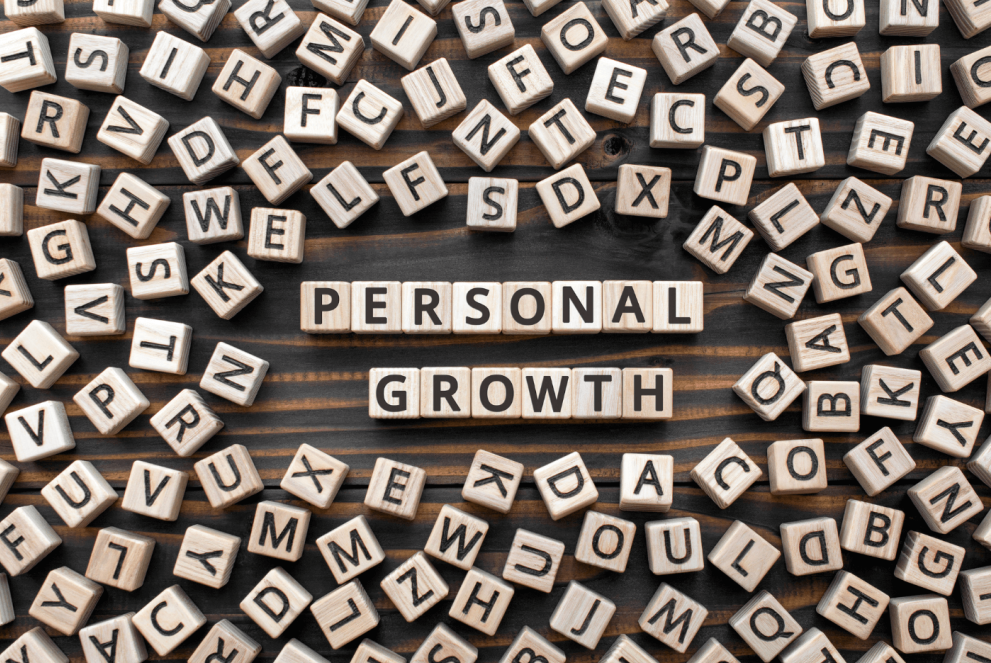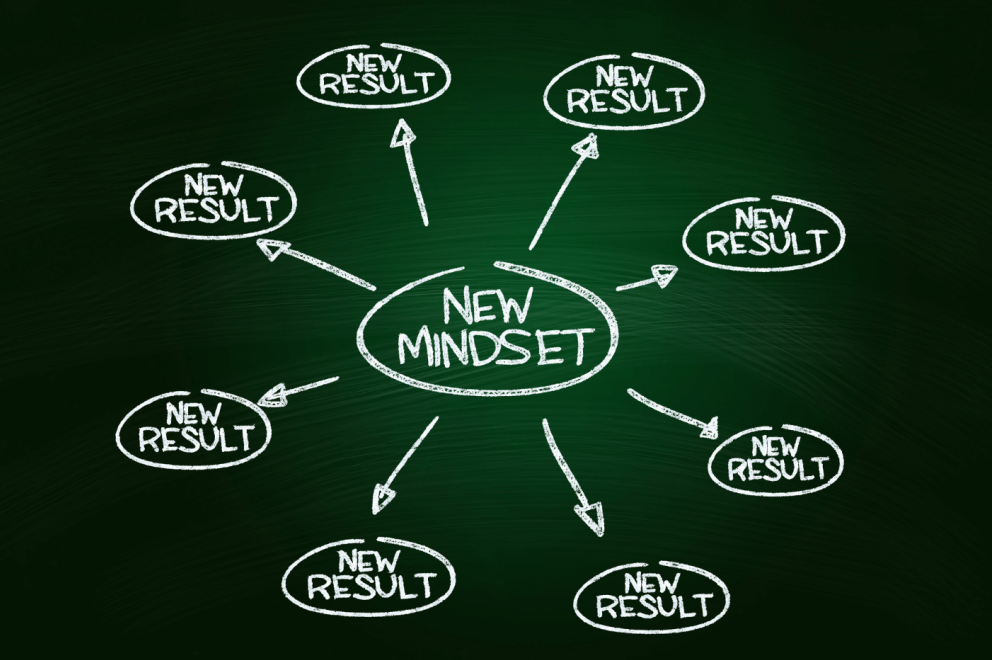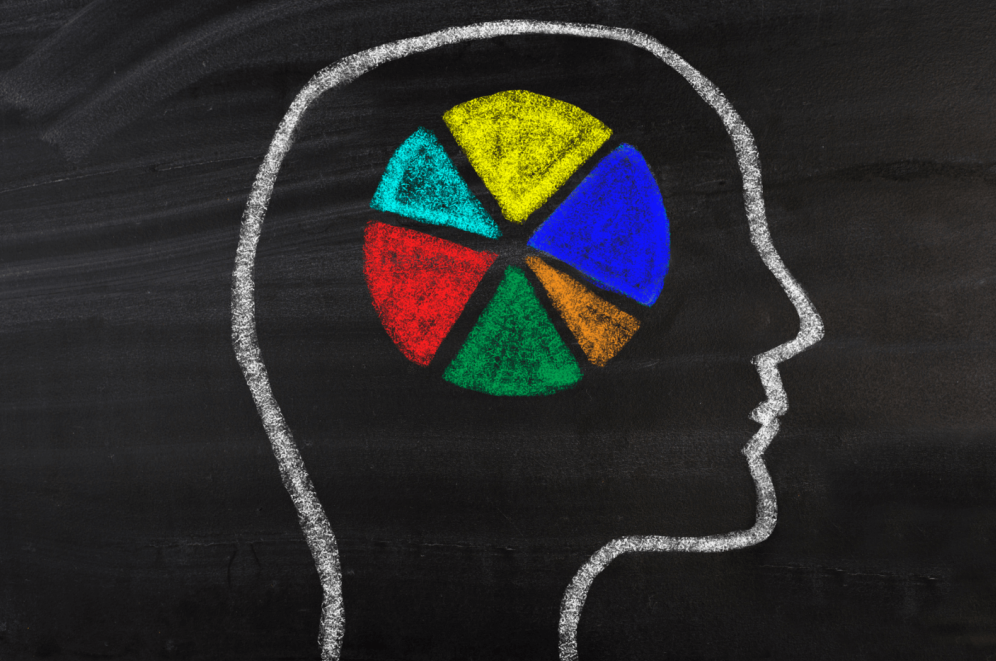4 Pillars, 8 Key Aspects, and 5 Steps For Personal Growth:

Your Ultimate Guide to Self-development.
Self-development is a continuous journey where you work on improving various aspects of yourself. It is about recognizing your potential, setting goals, and taking steps to become a better version of yourself. Whether enhancing your skills, gaining more knowledge, building better habits, bettering your relationships, or finding deeper meaning in life, self-development is the roadmap to personal and professional growth.
In the uber-competitive and fast-moving world we find ourselves in, this has become more important than ever.
Not to perform better, but to feel better.
When we start down the path of personal growth, we give ourselves a chance to actually take a step back, and start paying attention to what gives us meaning and satisfaction in life. To start living our own highest purpose, not dictated by what we’re told by the news and the latest lifestyle commercials, but by what we sense within ourselves.
Self-development directly influences the quality of your life. When you commit to your personal growth, you invite opportunities that can lead to a more satisfying and successful life. The more you work on yourself, the better equipped you become to handle life’s challenges and embrace new opportunities.
I can attest to this on a very personal level, as 15 years ago I had to face the fact that my alcohol and substance intake had reached a level where it was becoming a serious problem. I sought out help and got out on the other side, clean and sober, but also a human wreck in more ways than I care to think about – physically, emotionally, spiritually, financially. This is what initially set me on the path towards self-development and today as a father of two, a counselor in mental health, a musician, and an entrepreneur I can attest to the fact that with some guidance and effort, it is absolutely possible to turn your life around.
The methodologies I present to you all through the pages of this blog are based on thorough research combined with real-life experience.

– And yes, it also works even if you were a bit smarter than me and did not f*ck up most of your early life like I did… 😉
But that does bring me to an important point. Of course, people are different. A journey of self-development will, by definition, look different for everyone, but the principles and methodologies are universal. Adjust them to your own needs. In practice this usually means that you might focus more on certain areas than somebody else.
For instance, I were to compare my own journey to, say, the journey of David Goggins, I would obviously focus significantly more on the aspects of discipline and consistency than him. Conversely, he might spend a little more time on the aspect of emotional well-being (purely hypothetically speaking, I don’t know David Goggins personally).
So keep that in mind as you embark on this fantastic and life-changing journey. I promise you with a minimal effort, you can significantly enhance your life. And if you dive into this and really start digging deep the possibilities are unlimited!
“Personal development is a major time-saver. The better you become, the less time it takes you to achieve your goals.”
– Brian Tracey
So without further ado, let’s explore the essential steps, pillars, and aspects of self-development. By the end of this post, you’ll not only understand how to grow personally but also have the knowledge to plan out your journey of self-development and take control of your destiny.
I am going to present you with 5 different methodologies that I have used over the years and continue to use to this day. To make the process as easily understandable and approachable as possible, I find it a lot easier to have a somewhat structured approach.

Here’s a quick rundown of what you will learn:
- What Is Self-Development and Its Stages? A short definition/explanation of what self-development is and the stages involved.
- What Are the 4 Pillars of Self-Development? These are overall guiding principles to keep in mind throughout the process.
- What Are the 8 Aspects of Self-Development? Simply put, these are key areas you should be focusing on as you undertake this process. These will make sure you cover all the areas that are crucial in creating a fulfilling life. As I mentioned some of these might be more important than others for you depending on your specific life, goals, and wishes, so feel free to spend more or less energy on each of these as you see fit. Remember this is your personal journey. Treat it as such!
- The true action step is The 5 Key Steps in Personal Development. This is the actual process of planning and pursuing self-development based on the knowledge you have uncovered.
- And finally What are The 4 P’s of Personal development. This is a simplified way to remember what to focus on moving forward in your day-to-day activities.
You may find that some of these concepts overlap each other, but I assure you, there is good reason for keeping these systems separate. And I can also assure you that if you apply these strategies somewhat consistently throughout at least a couple of months you will start to notice serious improvement in your life. The stages of self-development are interconnected with well-being. Working on yourself doesn’t just bring external success but also internal peace and fulfillment. It helps boost your confidence, improves relationships, and even enhances mental health.
So without further ado. let’s get into it!

What Is Self-Development and Its Stages?
Self-development refers to the continuous process of improving yourself in various areas—emotionally, intellectually, physically, and spiritually. It’s about becoming the best version of yourself through self-awareness, reflection, and intentional action. There are several stages of self-development that everyone goes through, whether consciously or unconsciously:
- Awareness
The first step in any development process is becoming aware that there is room for improvement. This could be prompted by life events, challenges, or simply a desire for something more. - Assessment
Once you’re aware of the need for growth, the next step is to assess your current situation. What are your strengths? What are your weaknesses? What specific areas of your life require attention? - Action
With a clear understanding of where you stand, you can now take action. This is the stage where you create a plan for growth, establish habits, and commit to the process. - Adjustment
As you move through your self-development journey, you’ll need to make adjustments. This could mean changing your goals, trying new strategies, or reassessing your approach as challenges arise. - Achievement
Finally, you reach a point of achievement. Whether it’s mastering a new skill, feeling a greater sense of emotional balance, or fulfillment, this stage is the culmination of your efforts. This is crucial to be consciously aware of as it usually comes through small, gradual improvements that are easy to miss on a day-to-day basis. It’s like watching a child grow. If you don’t pay attention, you won’t notice. So, just as you mark your kid’s height on a doorway, make sure to regularly jot down your small achievements. Keeping a journal is a fantastic practice, and in itself a valuable tool in your self-development journey.
It’s important to realize that in the process of self-development, you will never “arrive and be finished”. It’s not a goal to reach but rather a journey to travel, and it never ends. So pay attention to the little wins and gradual improvements you make over time. Make sure to take stock and evaluate your process. This helps keep you motivated and it helps you determine what is working and what is not.

What Are the 4 Pillars of Self-Development?
In the journey of self-development, four essential pillars provide the foundation for personal growth. These pillars serve as guiding principles to help you understand yourself, build resilience, and continue evolving. Let’s dive into each one.
- Self-Awareness. Self-awareness is the cornerstone of personal growth. It involves an understanding of your thoughts, emotions, behaviors, and patterns. When you become more self-aware, you gain insight into your strengths and areas for improvement. This enables you to make conscious decisions that align with your values and long-term goals. Practices like journaling, meditation, and general reflection can help cultivate self-awareness.
- Mindset and Attitude. Your mindset plays a crucial role in how you approach challenges, setbacks, and opportunities. A growth mindset, in particular, allows you to view difficulties as chances to learn and grow, rather than as obstacles. Attitude shapes how you respond to life’s unpredictability, and a positive, resilient attitude can make all the difference in overcoming adversity. Fostering a growth mindset enables you to continuously improve, adapt, and thrive in any situation.
- Discipline and Consistency. No matter how motivated you are, real progress is made through discipline and consistency. These qualities help you stay committed to your goals, even when motivation fades. By building habits and sticking to routines, you create a solid foundation for sustained growth. Discipline ensures that you follow through on your intentions, while consistency compounds your efforts over time, turning small actions into significant achievements.
- Lifelong Learning. The journey of personal growth never ends, and lifelong learning is key to keeping that momentum going. Embracing curiosity and a thirst for knowledge allows you to continuously expand your skills, perspectives, and understanding of the world. Whether it’s through formal education, self-study, or simply staying open to new experiences, lifelong learning ensures that you remain adaptable, informed, and ready to grow at every stage of life.
By nurturing these four pillars you can build a strong foundation for ongoing personal growth. Each pillar supports the others, creating a well-rounded, holistic approach to becoming the best version of yourself.
“We can’t become what we need to be by remaining what we are.
– Oprah Winfrey
What Are the 8 Aspects of Self-Development?
Self-development is a holistic process that touches upon multiple aspects of life. Here are the 8 key areas you should focus on:
- Physical Health. Focusing on physical health is essential. Regular exercise, a balanced diet, and quality sleep are the foundation for a vibrant life. Your body’s health directly impacts your ability to think clearly and pursue personal goals.
- Emotional Well-being. Developing emotional well-being involves managing stress, developing positive relationships, and building resilience. Emotional balance allows you to handle life’s ups and downs more effectively.
- Mental Growth. Mental growth requires a commitment to continuous learning and sharpening your mind. Engage in activities that challenge your intellect, such as reading, solving puzzles, or learning new skills. A sharp mind is a key ingredient for success.
- Social Connections. Strong social connections contribute to emotional well-being and provide a support system during tough times. Building and maintaining meaningful relationships is crucial for a happy, balanced life.
- Financial Stability. Achieving financial stability is a vital part of self-development. Financial stress can impede personal growth, so developing good money habits and investing in financial education can create a sense of security. Also, being financially free will allow you to plan your life according to your wishes. This means you can have your morning routine, you can do a mid-day workout, take a couple of days for self-reflection when needed etc.
- Spiritual Fulfillment. Spiritual fulfillment is about connecting with a deeper sense of purpose. This aspect is highly personal and can take different forms depending on your beliefs and values. Personally, I like reading about philosophies like stoicism and existentialism, the Tao Te Ching, Buddhism, etc., but this is completely your own choice.
- Career/Professional Growth. Professional growth is about constantly improving your skills and abilities in your career. Whether it’s seeking promotions, starting a new venture, or expanding your knowledge, career/professional growth is essential for long-term satisfaction.
- Recreational and Leisure Balance. Work-life balance is critical. Incorporating hobbies, leisure activities, and relaxation is essential to prevent burnout and keep life enjoyable. If we forget that, then what is it all for, right?
So, as you move onto the next step and start getting into the actual process of self-development, take these points – and what they look like to you – into account and think about how you can integrate them into the process.
The 5 Key Steps in Personal Development
Now that we know about the Pillars, Steps, and Aspects of self-development we can start comprising our plan to best achieve what we wish.
As I see it, personal development is best approached as a structured process that involves various steps aimed at fostering growth and realization of potential. The journey I have preacticed comprises different stages, each contributing significantly to your development. Here are the five key steps in personal development that act as a guide in transforming your life.
- Self-reflection is the starting point. The cornerstone of any personal growth journey is self-reflection. This involves taking an honest look at your life, and understanding who you are, your strengths, weaknesses, values, and emotions. Journaling, meditating and simply allowing yourself to think and reflect on your life are essential tools here that can help you with this continuous process of introspection.
This step is crucial because being aware of yourself allows you to identify areas that need improvement and set realistic goals. - Goal setting comes next. Once you know where you stand, it’s time to decide where you want to go. Setting clear, achievable goals provides direction and motivation. Your goals should be S.M.A.R.T. (Specific, Measurable, Achievable, Relevant, and Time-bound). Goal setting gives direction to your efforts and keeps you focused, so take some time to figure out what direction you want to take in life, and what steps you need to take to get there.
Again, journaling, meditation and introspection are your friends here. - Creating a plan is about plotting a roadmap to reach your goals. A goal without a plan is just a wish. To truly achieve your goals, you need a detailed plan. When you have your goals ready, analyze them to break them down into smaller, manageable tasks, and set a timeline for completion.
One simple but very effective way to do this is to look at your goal for the year, then break it down into four equal parts for the quarters. Next, break those down further into three equal parts for the monthly goals. Continue with four equal parts for the weekly goals and, finally, five for the daily goals (taking into account two days off for the weekend). This leaves you with daily goals that should be manageable. If they’re not, then your yearly goal is too ambitious, and you need to adjust accordingly. This structure ensures steady progress and minimizes overwhelm.
- Execution is where most people stumble. After setting goals and creating a plan, taking consistent action is critical. This involves taking action based on your plan. Consistency and commitment are key here. It’s where hard work and dedication come into play. Remember, progress might be slow, setbacks and obstacles are part of the process, but staying committed to your plan is essential. Persistence is what leads to success.
- Evaluation and Adaptation. Regularly evaluating your progress is essential for long-term growth. Assess what’s working and what isn’t, learn from your mistakes and adjust your strategies accordingly. This ensures continuous improvement and helps you stay on track, even when life throws challenges your way.
So, that is the planning/execution phase. This is, of course, the most important and concrete part of the journey, but remember that a lot of thought goes into it.
Also, keep in mind that your goals can be simple things. We tend to think of self-development within a very narrow, go-getter mentality, like building a business, running marathons, or other lofty goals. And if this is what you want, you’ve certainly come to the right place. Just remember that if your goals are simpler – like reading more, learning to cook your own meals, or consciously keeping in touch with loved ones – these things are perfectly valid as well!
The important thing is to stay true to yourself and your own values if you want to live a fulfilling life.

What Are the 4 P’s of Personal Development?
Purpose – Passion – Perseverance – Practice
These 4 P’s serve as guiding principles for maintaining momentum and achieving success in your self-development journey. Personally, I use these as an easy way to keep me focused in my day-to-day. If I am faced with on-the-spot decisions or I am unsure how to move forward, I can use these as a quick litmus test. If what I am about to do is in line with one of the four P’s, then I am pretty sure it won’t be a complete waste of my time. I might adjust things later, given more time to reflect and journal, but if I keep these in mind I can be pretty confident I am not straying too far off course.
- Purpose. A clear sense of purpose helps you stay focused and motivated. Knowing your “why” will fuel your passion and keep you moving forward, even when things get tough.
- Passion. Passion drives energy. It’s essential to engage in activities that inspire and excite you. Passion helps you maintain momentum and find joy in the process of self-improvement.
- Perseverance. Growth takes time, and setbacks are inevitable. Perseverance is the quality that keeps you moving forward despite obstacles. It’s the difference between giving up and achieving greatness.
- Practice. Consistency is key to success. The more you practice a skill or habit, the better you become. Continuous, deliberate practice leads to mastery over time.
So, there you have it. These are some of the most important methods I’ve learned, compiled, and used over the last 15 years to take myself from being a person emerging from years of chaos and self-destructive living to someone who now has a sense of pride in my accomplishments—someone you can count on and who is determined to leave a positive mark on the world.
My hope is that you find some of this useful and that you will apply these methods to improve your own life and the lives of those around you.
I would also love to hear your thoughts! Please let me know if any of this resonates with you if you find it useful, or if you think it’s nonsense.
And, of course, if you try any of these methods, I would love to hear about your results.
“One can choose to go back toward safety or forward toward growth. Growth must be chosen again and again; fear must be overcome again and again.”
– Abraham Maslow
What an incredible and heartfelt post. Thank you for sharing not just the steps and principles, but also your personal journey. It really brought the message home. I appreciate how you combined practical strategies with such honesty and lived experience. The 4 P’s especially stood out to me. They’re simple yet powerful reminders I can see myself turning to daily. While my own path has been quite different, the emphasis on self-awareness, consistent reflection, and staying true to your values really resonates. I’ll be bookmarking this to return to, and sharing it with a few friends too.
Thank you so much for your message, Sharon. It really means a lot, and I’m really glad the post resonated with you. The 4 P’s are neat, right? They can become a kind of compass over time, cause they’re so easy to remember. I’m super glad you found them helpful as well. That is incredibly encouraging.
And it’s so nice to hear that, even though our paths may differ, the core themes of self-awareness, reflection, and staying aligned with your values still landed. That’s one of the most powerful aspects of self-development. Iit’s deeply personal, but at the same time, the principles are universal!
Thank you again for reading, bookmarking, and sharing. That kind of connection and dialogue really make it worth it to write these posts. Out of curiosity, was there one “P” that especially clicked with you or felt most relevant to where you are on your journey right now?
All the best,
Michael
This was such a refreshing and grounded take on self-development. I really appreciated how you balanced practical structure with personal insight especially the part about not needing to chase lofty goals to grow. Your story adds real weight to the message and makes the advice feel attainable. I’m curious though how do you personally stay consistent when motivation dips, especially during tough emotional phases?
Thank you so much Kavitha. I really appreciate your kind words! It means a lot to hear that the balance between structure and personal insight resonated with you. There is so much material out there on self-development, that I think it’s important to keep it somewhat down to earth.
As for staying consistent during tough emotional phases. That’s a great question. Honestly, I find that it’s as simple as remembering that discipline and habits beats motivation every time. I try to rely on small, repeatable habits that don’t depend on how I feel in the moment. Even something as simple as a 5-minute stretching routine, 2 minutes tidying up my desk, or a walk outside can keep the momentum going.
I also make sure I always work with very flexible routines, not rigid ones. That way I can adjust without falling off completely. And when things get really rough, I remind myself that progress doesn’t always look like forward motion. Sometimes just not stopping is enough.
Would love to hear how you handle those dips too. Thanks again for reading and engaging! ????
Hello, this is some very good reading. Recognizing my potential is something I really must work on. I do not really expect too much from my endeavors. I have never seen anything result from what I am doing to show me otherwise. What gives me meaning and satisfaction in life is being able to share what I have learned concerning solo travel and family travel. The problem is, very few people have shown interest in what I am sharing.
Maybe I do need some kind of self development. I have never thought about it. I guess I have to be aware that, I, myself, may need improvement rather than just my work. I think my greatest weakness is my lack of confidence. My greatest strength is patience and constancy. I keep blogging and vlogging no matter what. Nothing can stop me from sharing with the world. So, I guess I have to come up with a plan of action then. OK, I am going to save this article so I can read it several times to make sure I can apply the 5 steps in personal development and the four Ps in my life for now on. Oprah Winfrey quote really struck home. I do not want to remain what I am. I want to be more assured in my abilities then maybe I can more successful results from my work. Thank you for the instites and I will come back to them.mac.
Hi Mac. Thank you so much for your heartfelt message, it really genuinely touched me.
First off, I just want to say: your consistency and passion for sharing your experiences in travel are strengths many people wish they had. The fact that you keep showing up, even when it feels like no one is watching, says so much about your character and resilience. This is probably your greatest asset, and if you keep applying it, you will see results of your work. I am absolutely certain of this!
I truly believe that confidence is something we build through action, reflection, and – just like you’re doing now –being honest with ourselves and others about where we are and where we want to grow. The fact that you’re open to exploring self-development is already a fantastis step forward.
And remember it’s not about changing who you are, but about uncovering more of the potential that’s already within you.
Keep sharing your voice. You never know who you’re inspiring, even if it may feel like it’s quiet out there. And I’m really glad the Oprah quote resonated with you. It’s one of my favorites too. 😉
And I’m honored that you’re saving the post to come back to. You’ve got everything it takes, Mac. Wishing you all the best as you keep growing and creating!
All the best,
Michael
That advice about breaking a big yearly goal into little daily tasks sounds so simple. I have certainly been guilty of setting huge ambitions and then paralyzed on day one with no idea where to even start.
Thinking of it as just one small, manageable action for the day makes it feel a whole lot less like a mountain. That is so extremely practical. Appreciate you sharing your story, too. Cheers.
Hi Israel. Thank you so much for your kind words.
I’m really glad that part resonated with you! I’ve definitely been there too: setting a huge goal, getting super excited… and then totally freezing because I didn’t know where to begin. The good news is that we can all learn a different approach, right? 🙂
It’s amazing how much changes when we shift from “How will I do all of this?” to “What’s one small thing I can do today?” That little mindset tweak can really unlock momentum and take away so much of the pressure. And once you start getting comfortable with that principle it can be applied to anything in life!
Wishing you all the best as you keep moving forward. One doable step at a time. You’ve got this.
Cheers right back!
All the best,
Michael
You have explained the various stage of self development and awareness extremely well, and it helps when you see it broken down into separate segments. To me the hardest part is the beginning which is awareness, as you need to know exactly what the habits are that you would like to change, and I think I will need to ask others for their opinion here, as not sure where to begin.
Getting to the achievement part is a great feeling if you can master a skill, and a reward for your efforts should be awarded if you get to this step, or close on your journey.
Thank you so much for your kind words and for sharing your reflections, Michel. I completely agree with you that the beginning is almost always the hardest part. Gaining honest self-awareness takes courage, and it’s not always easy to see our own habits clearly. I love that you’re open to asking others for their input. That kind of vulnerability and willingness to grow is already a huge step forward. And there is so much about ourselves we can’t see even if we try, so honestly, I think the only way to get any sort of real insight to ourselves, is to ask those around us. 🙂
You’re spot on about the feeling of accomplishment when we start mastering a new skill. Celebrating progress is so important. It reinforces our efforts and builds momentum to keep going. Self-development isn’t always linear, but every step is part of the transformation, and wothout the small steps there would be no big leaps! 😉
Wishing you lots of encouragement as you take these steps forward. You’ve got a strong mindset already by being intentional about your journey!
I’m rooting for you!
All the best,
Michael